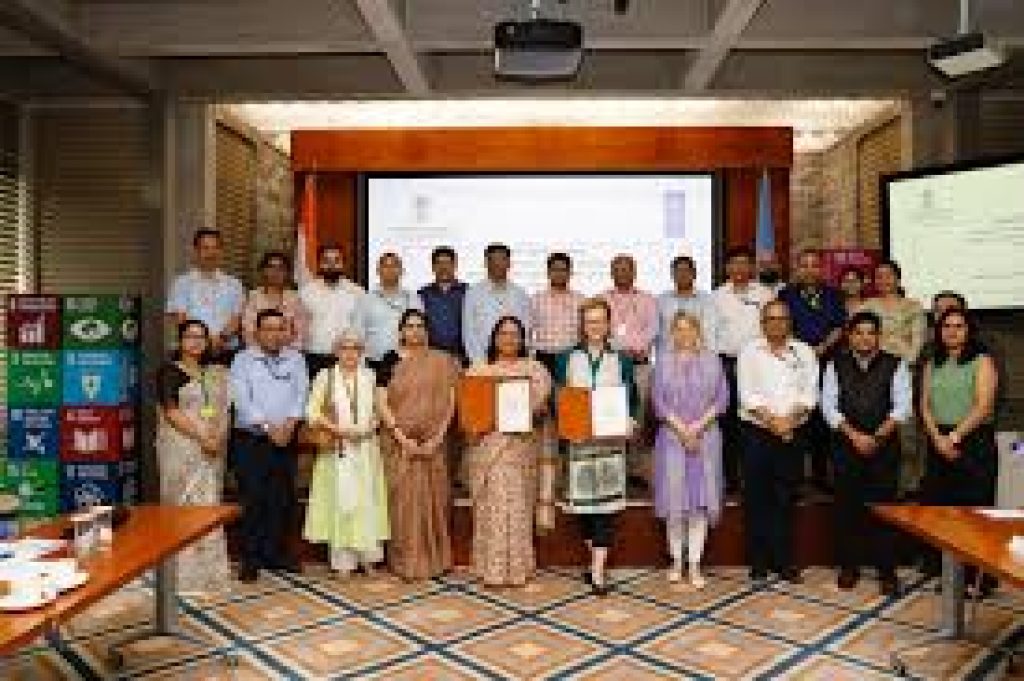DAHD & UNDP MoU on Digitalisation of Animal Vaccine Cold Chain Management

The Department of Animal Husbandry and Dairying (DAHD) under the Union Ministry of Fisheries, Animal Husbandry & Dairying has signed a Memorandum of Understanding (MoU) with the United Nations Development Programme (UNDP) India to digitalize vaccine cold chain management, enhance communication planning, and build capacity.
Significance of the MoU
India, the world’s most populous country, is home to 142.86 crore people, 53.57 million farm animals, and 85.18 million poultry. To maintain animal health and prevent zoonotic diseases, such as bird flu and coronavirus, the government has initiated a comprehensive vaccination program. These zoonotic diseases, which transfer from animals to humans, pose significant health risks to people in close contact with infected animals. Adopting a One Health Approach, which emphasizes the interconnectedness of human and animal health within the same ecosystem, the government aims to reduce the risk of such infections.
UNDP’s Role in Vaccine Cold Chain Management
The UNDP will assist in developing India’s first animal vaccine supply chain management system, focusing on digitalization and remote temperature monitoring of cold chains. Vaccines need to be stored at 2-8 degrees Celsius to remain effective, and this partnership will ensure they are maintained within this range. Additionally, the collaboration will emphasize skill development, improving the technical expertise and capacity of stakeholders in the animal husbandry sector.
About United Nations Development Programme (UNDP)
Established in 1965 by merging the United Nations Expanded Programme of Technical Assistance with the United Nations Special Fund, the UNDP serves as the UN’s global development network. It aids member countries in addressing development challenges across three main areas: sustainable development, democratic governance and peacebuilding, and climate and disaster resilience. Headquartered in New York, USA, the UNDP is currently administered by Achim Steiner.